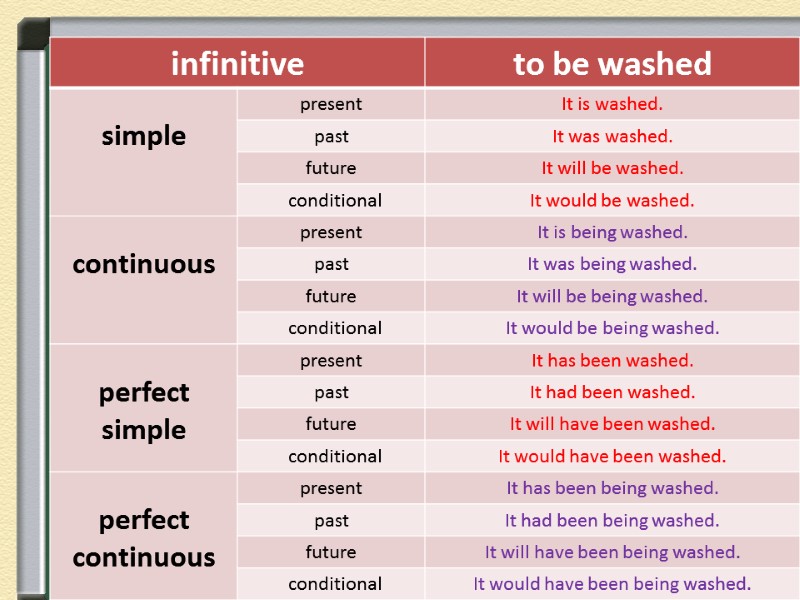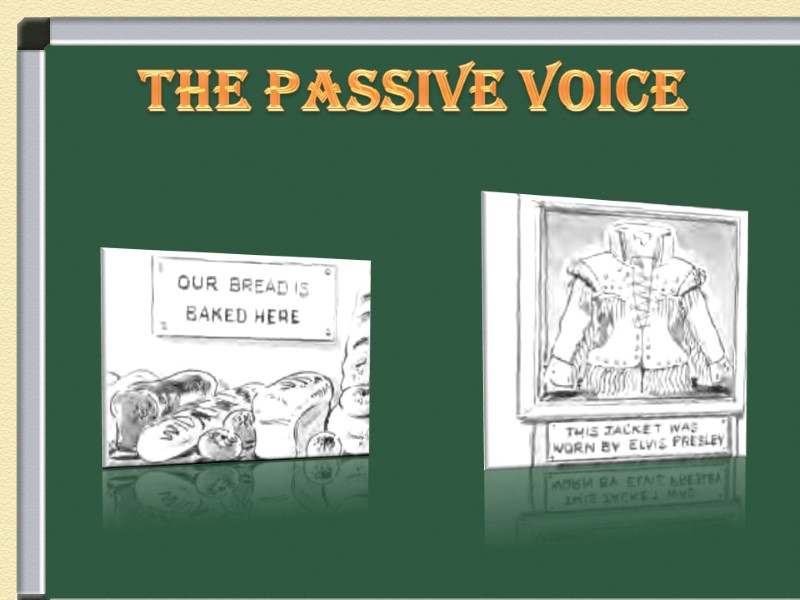 The Passive Voice
The Passive Voice
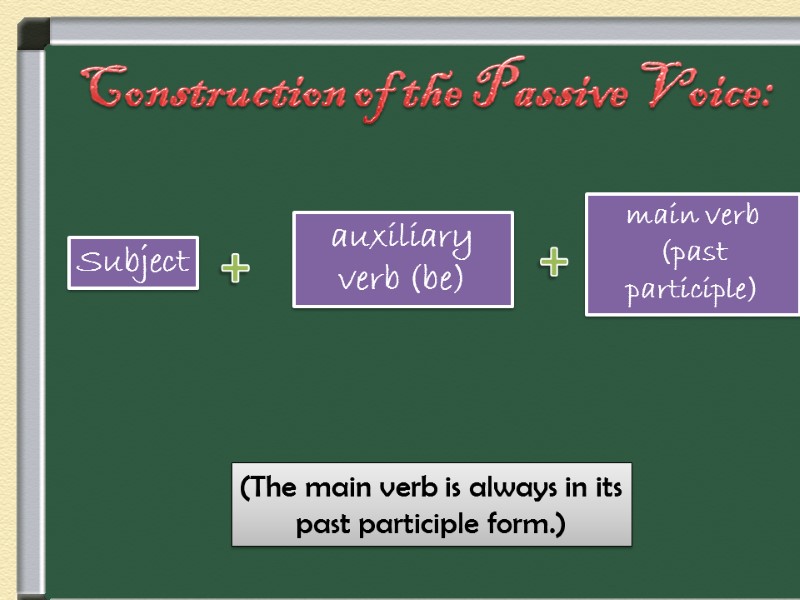 Construction of the Passive Voice: (The main verb is always in its past participle form.) Subject + auxiliary verb (be) + main verb (past participle)
Construction of the Passive Voice: (The main verb is always in its past participle form.) Subject + auxiliary verb (be) + main verb (past participle)
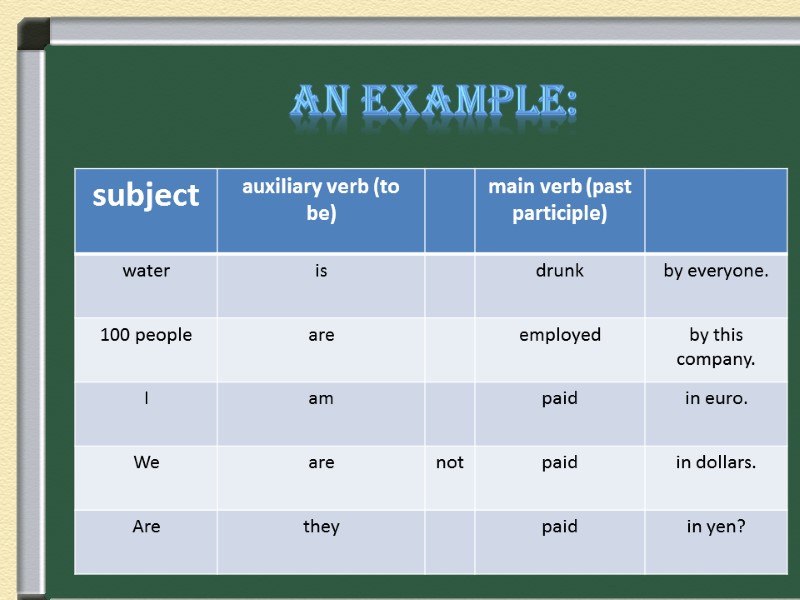 An example:
An example:
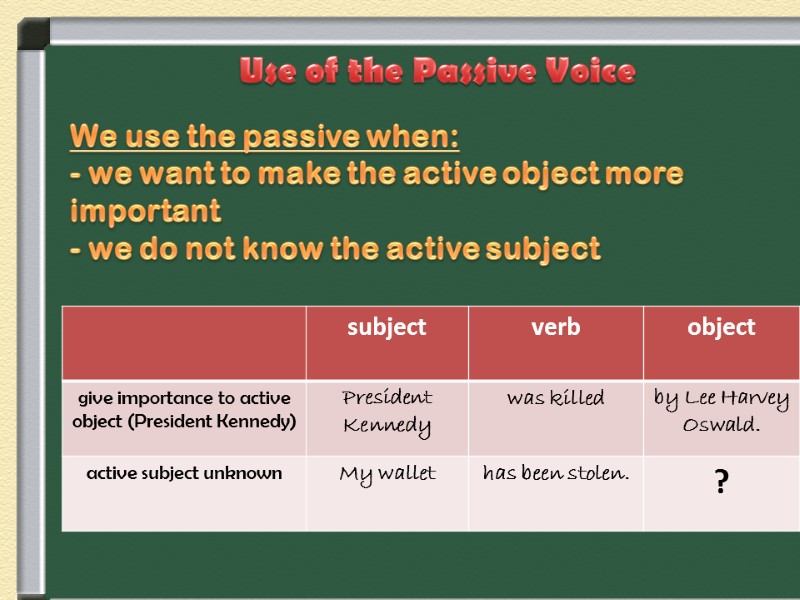 Use of the Passive Voice We use the passive when: - we want to make the active object more important - we do not know the active subject
Use of the Passive Voice We use the passive when: - we want to make the active object more important - we do not know the active subject
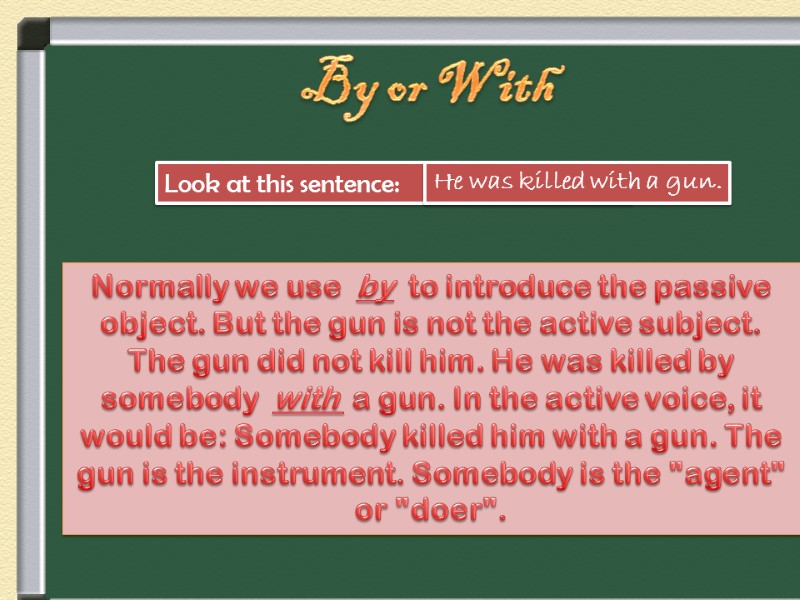 By or With Normally we use by to introduce the passive object. But the gun is not the active subject. The gun did not kill him. He was killed by somebody with a gun. In the active voice, it would be: Somebody killed him with a gun. The gun is the instrument. Somebody is the "agent" or "doer".
By or With Normally we use by to introduce the passive object. But the gun is not the active subject. The gun did not kill him. He was killed by somebody with a gun. In the active voice, it would be: Somebody killed him with a gun. The gun is the instrument. Somebody is the "agent" or "doer".
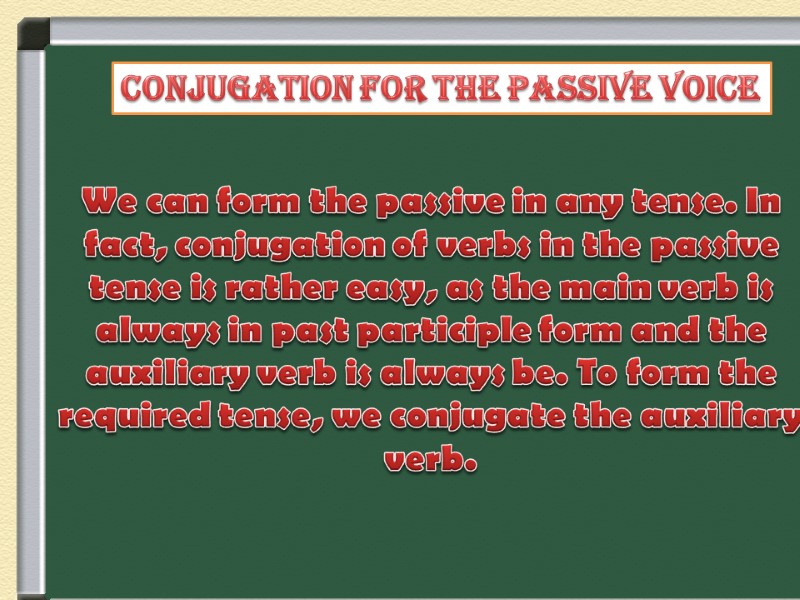 Conjugation for the Passive Voice We can form the passive in any tense. In fact, conjugation of verbs in the passive tense is rather easy, as the main verb is always in past participle form and the auxiliary verb is always be. To form the required tense, we conjugate the auxiliary verb.
Conjugation for the Passive Voice We can form the passive in any tense. In fact, conjugation of verbs in the passive tense is rather easy, as the main verb is always in past participle form and the auxiliary verb is always be. To form the required tense, we conjugate the auxiliary verb.
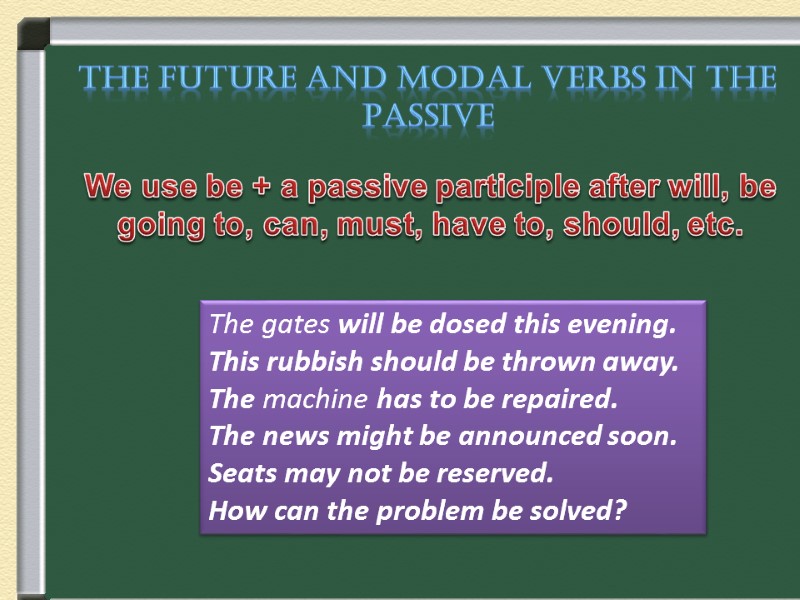 The future and modal verbs in the passive We use be + a passive participle after will, be going to, can, must, have to, should, etc. The gates will be dosed this evening. This rubbish should be thrown away. The machine has to be repaired. The news might be announced soon. Seats may not be reserved. How can the problem be solved?
The future and modal verbs in the passive We use be + a passive participle after will, be going to, can, must, have to, should, etc. The gates will be dosed this evening. This rubbish should be thrown away. The machine has to be repaired. The news might be announced soon. Seats may not be reserved. How can the problem be solved?
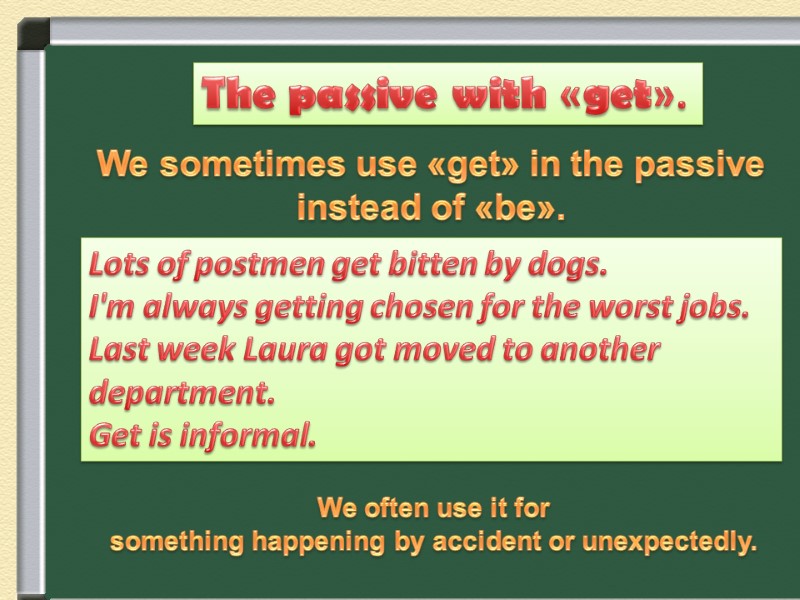 The passive with «get». We sometimes use «get» in the passive instead of «be». Lots of postmen get bitten by dogs. I'm always getting chosen for the worst jobs. Last week Laura got moved to another department. Get is informal. We often use it for something happening by accident or unexpectedly.
The passive with «get». We sometimes use «get» in the passive instead of «be». Lots of postmen get bitten by dogs. I'm always getting chosen for the worst jobs. Last week Laura got moved to another department. Get is informal. We often use it for something happening by accident or unexpectedly.
 In negatives and questions in the present simple and past simple, we use a form of «do». The windows don't get cleaned very often. How did the painting get damaged?
In negatives and questions in the present simple and past simple, we use a form of «do». The windows don't get cleaned very often. How did the painting get damaged?
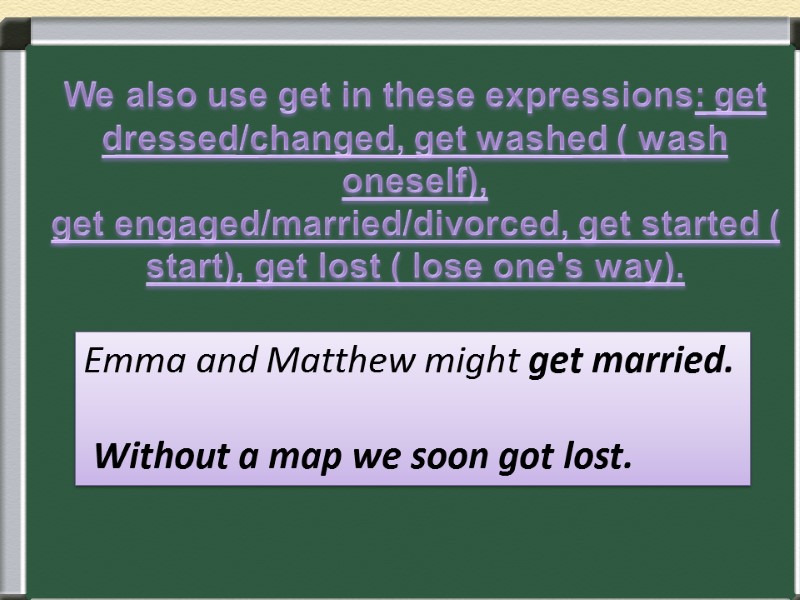 We also use get in these expressions: get dressed/changed, get washed ( wash oneself), get engaged/married/divorced, get started ( start), get lost ( lose one's way). Emma and Matthew might get married. Without a map we soon got lost.
We also use get in these expressions: get dressed/changed, get washed ( wash oneself), get engaged/married/divorced, get started ( start), get lost ( lose one's way). Emma and Matthew might get married. Without a map we soon got lost.






